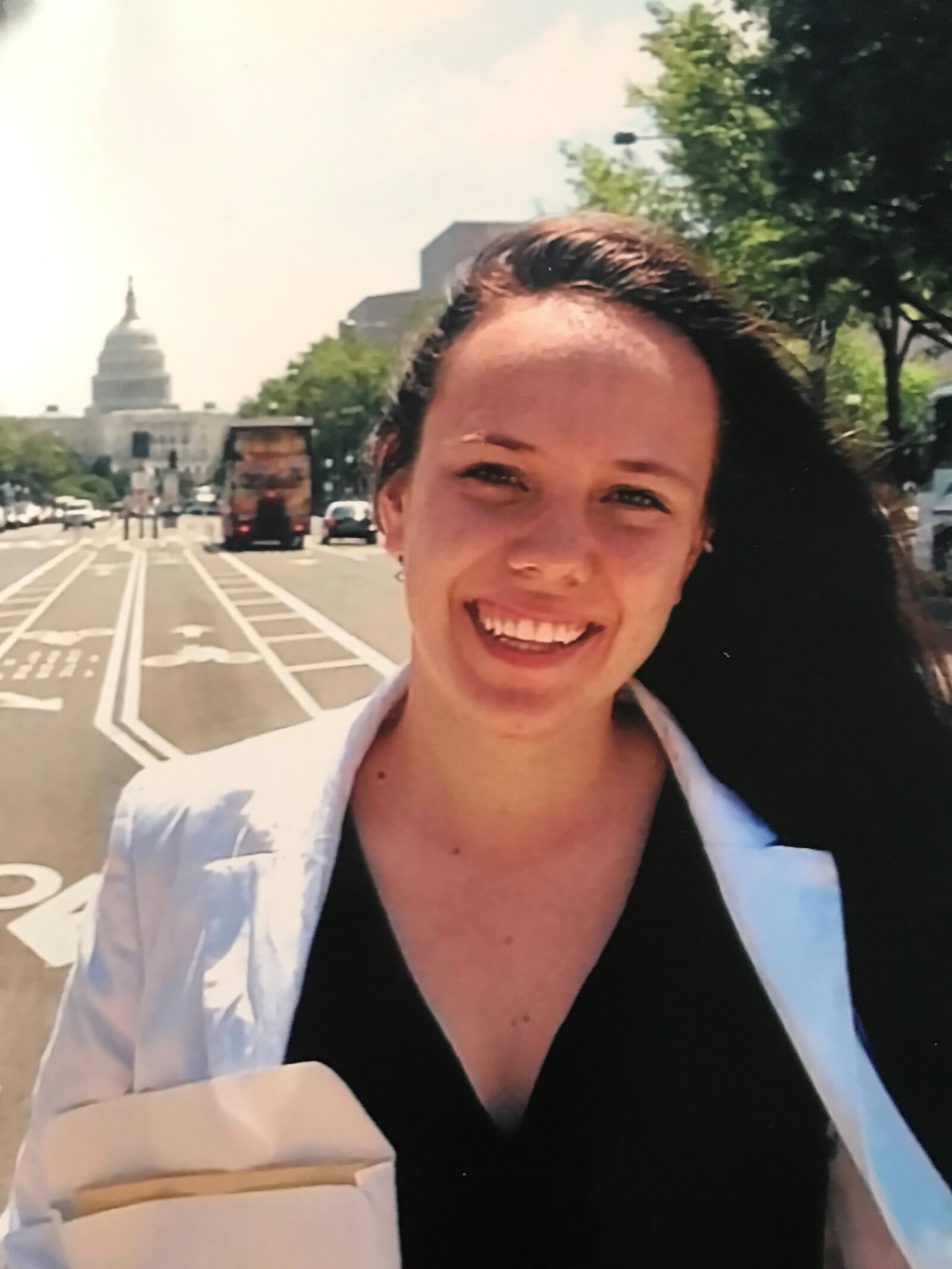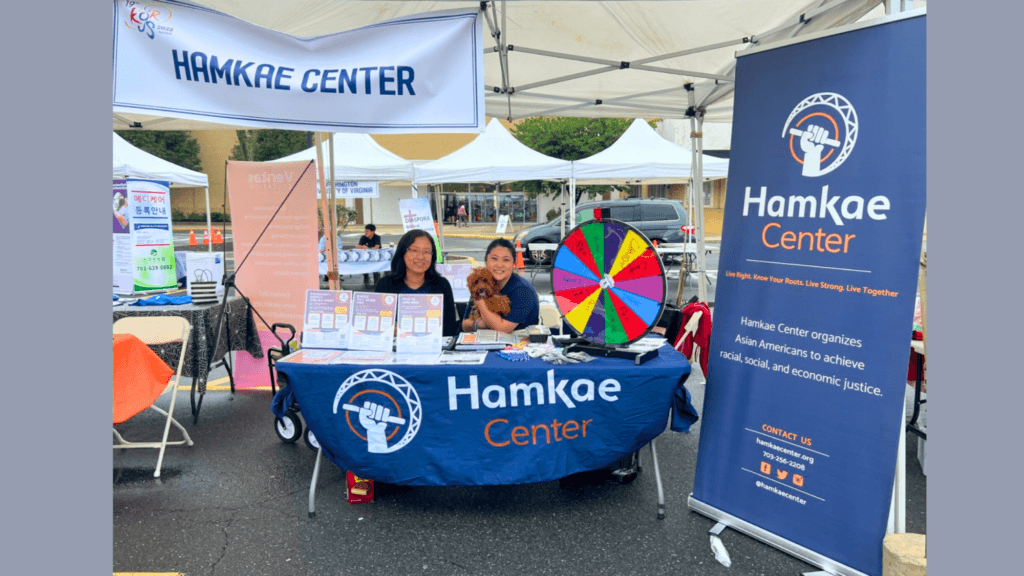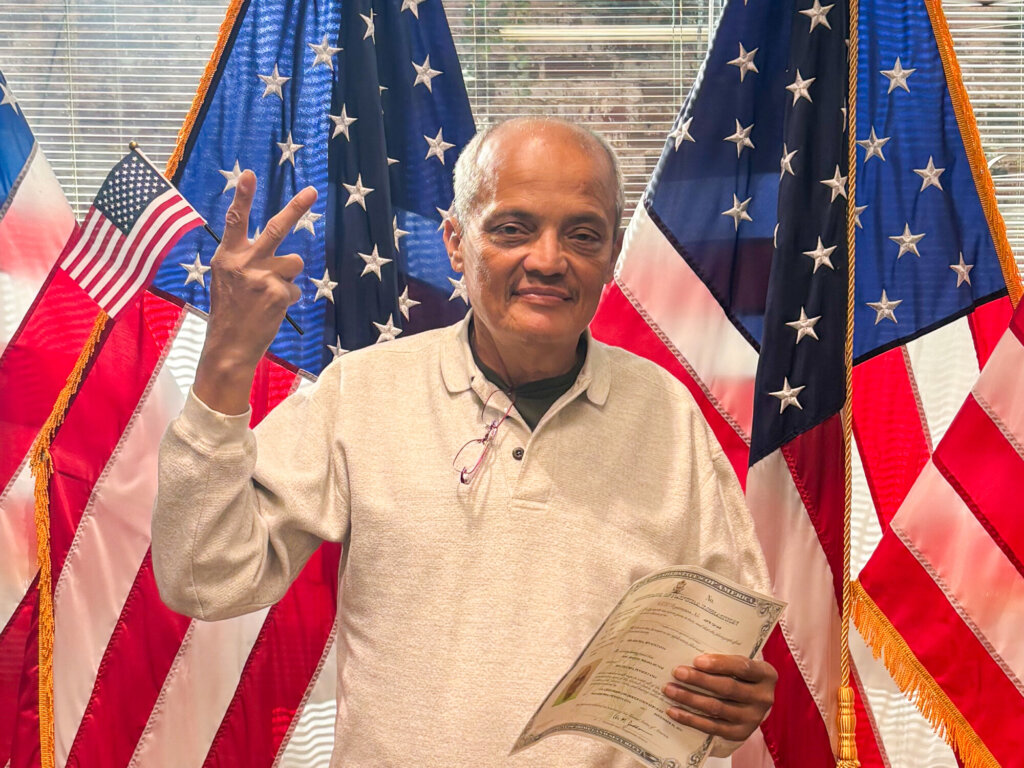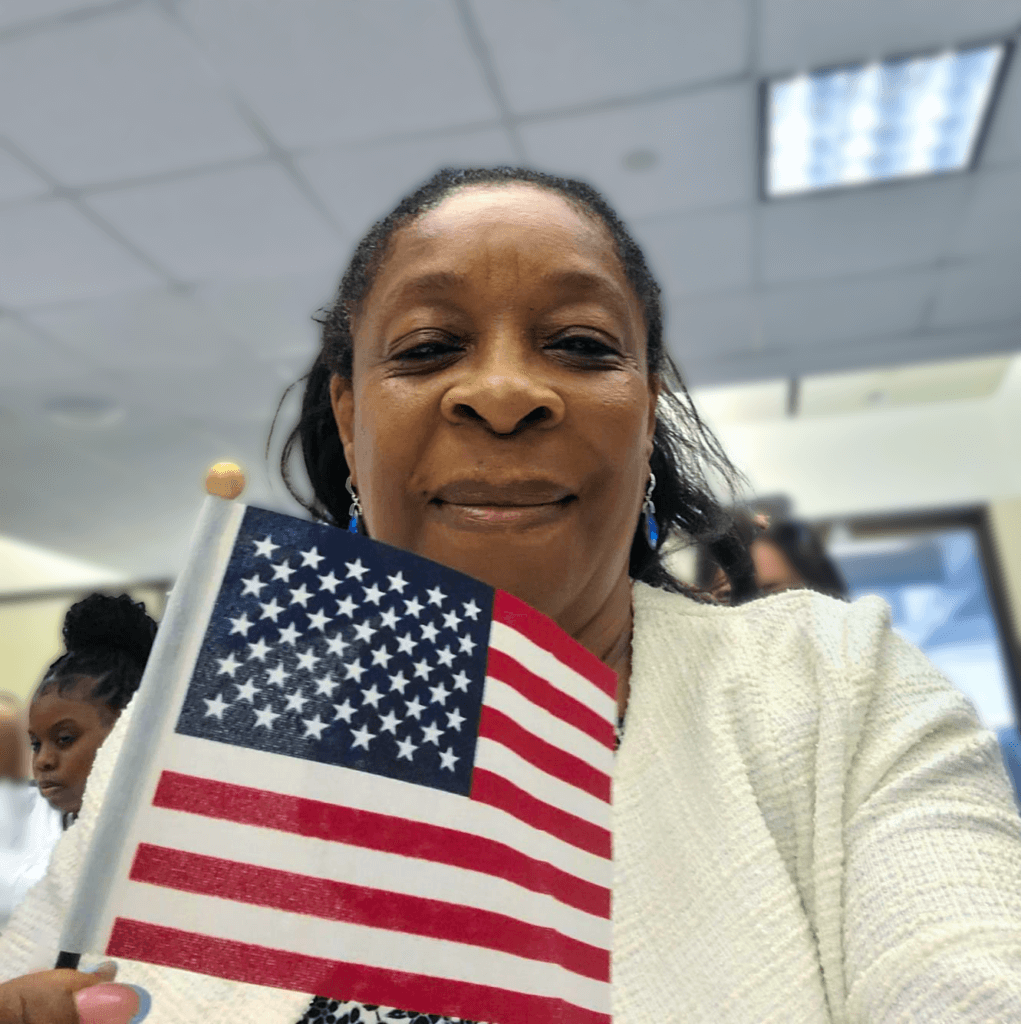Cathleen Farrell: “Hey That’s Our Flag!”

Explore More
Cathleen Farrell is the
director of communications of the National Immigration Forum. She is a native
of Canada, and moved to the United States with her two Colombian-born daughters
19 years ago.
I was living
and working in Bogota, Colombia, and I moved to Miami Beach, Florida in 2000,
on an H-1B visa to help start a media company. It took seven years to get my
green card, and then another five years of waiting before I was eligible for
citizenship. My daughters, Manuela and Carolina, were five and one when we first
came to the United States. Once I realized that my children had come to
consider this home, it made it important to make our home more permanent than a
green card. My daughters were both born in Colombia; their father lives there
and they visit at least twice a year, but their loyalties are to this country,
because this is where they grew up. This is their home, this is where their
friends are, this is the culture they know and are familiar with.
After we moved
to Washington DC, and later, when I began working for the National Immigration
Forum, I really started to realize how important it was to become a U.S. citizen.
I led some research that we carried out on the perceived obstacles people have
to the naturalization process and it made me realize the urgency of becoming a
citizen—having a green card and being a permanent resident is not necessarily
permanent at all. You may consider the U.S. your country, but it doesn’t
consider you a citizen. I needed to become a citizen because I wanted to live
here, I wanted to be able to vote, and I wanted it to be able to participate as
fully as possible in our democracy.
By the time
my family became eligible for citizenship, my oldest was just about 18-years-old.
She felt very much like an American and very much at home here and she wanted
to apply to the U.S. Naval Academy (Annapolis). In order to go to the armed service
academies like West Point, Annapolis, or the Air Force Academy, you must be a U.S.
citizen. That was part of the urgency for Manuela, so she became a citizen
first. Not only was she accepted to the Naval Academy, she just graduated and
is now a naval officer! When I applied for citizenship in early 2017, I had
hoped that I would become a citizen before the end of the year, because my
youngest daughter would turn 18 in December; if she was under 18 she would
automatically become a citizen with me. But the naturalization application
process is so backlogged that I didn’t become a citizen in time for her. The
day after she turned 18, we submitted her application so that she could begin
her own process. I was sworn in several months later.
Immigrants
are very inspired by American history; we are drawn to it. When each one of us
prepared for our interviews, we all prepared together and we would do all 100
questions on the citizenship test. In fact, my
brothers in Canada all took the test too, just for the fun of it. And they all
scored a hundred!
When I did
become a citizen, I felt a huge relief. It gave me a sense of belonging. I’m
permanently in this country and don’t have to worry ever again about renewing a
visa. It also gave me a new sense of urgency about the need to participate in
this country and to make it a better place. It’s difficult to live in a
community or a society where you don’t completely have a voice. The fact that
you can vote is really powerful and it’s important to vote if for no other
reason than to express your opinion. It makes me feel a lot more hopeful about
the world that I’m leaving to my daughters.
On the day I
became a U.S. citizen, in mid-March of 2018, Carolina, my youngest daughter
told me she was happy. But, because both her older sister and I were now
citizens, she said, “Mami, I feel like I’ve been left behind.” It was very sad,
and very heartfelt. I was hopeful for her, however, because her application was
very straightforward. Sure enough, it took about a year and she became a
citizen last December. It was a big relief, and a moment of pride. It would
have been nice if I had become a citizen when they were younger, so that their
naturalization was derivative, but it was also special that we each had our own
process. It gave the girls a certain sense of independence but they also had to
be responsible for their own interviews, their own applications, and the
process itself. That made it much more meaningful for them.
When I took
the oath of citizenship I think my heart skipped a beat or two. Something about
you is changing and being affirmed and that has a certain amount of drama to it.
You’re confirming your own commitment to the country. So, it’s a big deal. It’s
like getting married! Especially because I have a daughter who’s a naval
officer, I think about what she’s doing with her life and what she’s willing to
do for this country. That moment, standing there with people from more than 50
other countries—it’s just tremendously moving. I want to share what I see as
American optimism. I think immigrants help renew this country; we help remind
Americans of why this is a great country. It’s given me tremendous
opportunities and given my daughters some extraordinary educational
opportunities. This country has also allowed me to raise my children with
certain values and freedoms that I’ve always shared and cherished.
On the day that each of was sworn in, we had a flag flown in our honor over the U.S. Capitol. They fly it over the Capitol and then they send it to you afterward. A friend of mine introduced us to the Capitol Flag Program. She had it done for my oldest daughter and then for me. I did it for my youngest daughter as well. That’s why in these photos you see us standing in the middle of the street with the Capitol in the background. We are saying, “Hey that’s our flag!”



